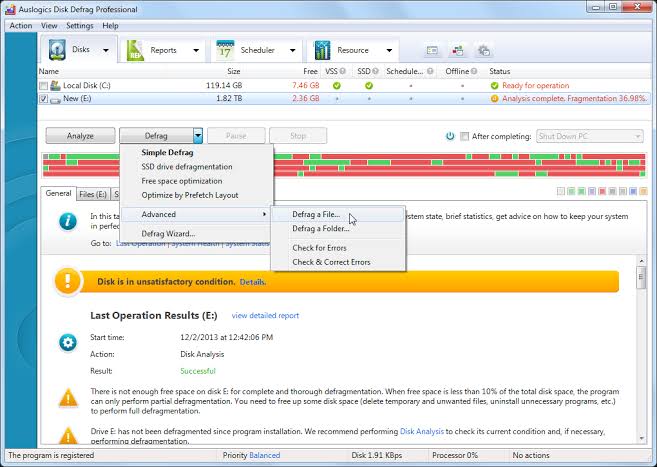

In Windows 7, it’s called Disk Defragmenter and in Windows 8 and higher, it’s now called Optimize Drives. Only if you have a very fragmented hard drive will you start seeing some slowdowns, but this is virtually impossible because of the built-in Windows defragmenter. So even if you have a partially fragmented hard drive, it most likely won’t even make any difference in how fast the data can be accessed. In addition to larger hard drives, modern machines and hard drives can access data much faster than earlier. With the extra space, Windows doesn’t have to fragment your files as much. This is because hard drives nowadays are much larger and therefore have a lot more free space. Windows Built-In Defrag Is The Bestįor 99% of the people reading this article, the built-in disk defragmenter tool in Windows is perfect for keeping your hard drive running smoothly.Ī bunch of people have actually gone through the trouble of testing out a lot of different defragment tools like Defraggler, MyDefrag, etc and have found that in Windows 7 and above, they don’t speed up read or write access to data on the hard drive by any noticeable amount.

This freed up some extra space and helped speed up the PC a bit. I was able to use a third-party tool to move all the data to the beginning of the disk. The only other scenario where a third-party defrag tool worked well was with a client who had a hard drive that was almost full. Obviously, as you can see, this is really only useful for certain specific scenarios and the time and effort spent doing all of this may not even yield any dramatic results. You could even defragment only certain files or folders instead of the entire drive if you wanted. For a drive that has a bunch of large music or video files that don’t get accessed very often, you could sort them on the disk by folder size or file size. If one drive has a lot of small files that are accessed often, you could use a third-party tool to defragment that drive so that the files are sorted by the last accessed time or creation time. For example, if you have four different hard drives installed on your PC, each containing different types of data like music, videos, operating system files, etc, then a third-party tool can let you defrag each drive in a different way. The only time I have actually seen a reason to recommend a third-party defrag tool to anyone was if the person had a complex setup on their PC with different types of data stored in different locations.


 0 kommentar(er)
0 kommentar(er)
